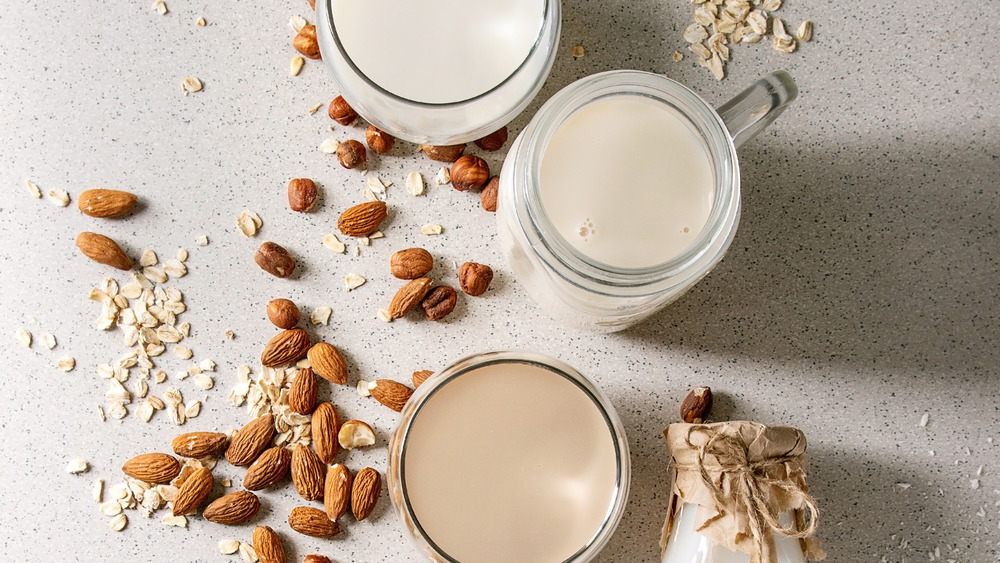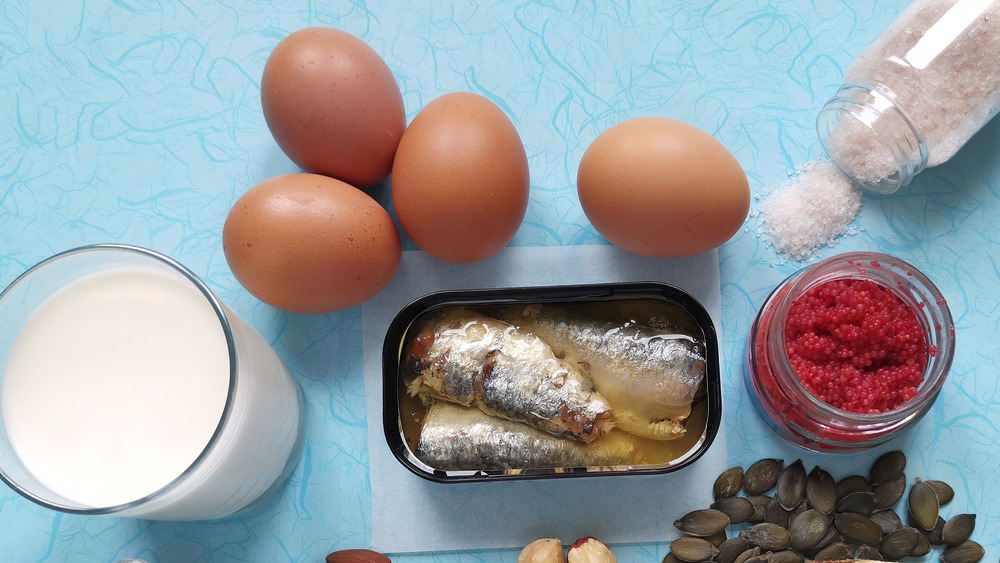Drinking Dairy-Free Milk Has A Surprising Effect On Your Brain
Milk alternatives such as almond milk, coconut milk, soy milk, and rice milk are fortified with nutrients such as calcium, which is necessary for strong bones. But they lack iodine, which the World Health Organization (WHO) says is vital to brain development (via The Independent).
Researchers from the University of Surrey in the United Kingdom examined the iodine content of 47 milk alternative drinks and compared it with that of semi-skimmed cows' milk. Their study, published in the British Journal of Nutrition, found that the majority of these milks had about two percent of the iodine level found in cows' milk.
Most adults need 150 mcg daily of iodine, which increases to 220 mcg during pregnancy, according to the U.S. National Institutes of Health. Infants and children up to age 18 need a range of about 90 mcg to 150 mcg, the NIH says. The UK study found that a glass of a milk alternative provides only about 2 mcg of iodine (via The Independent).
Seafood, iodized salt, and dairy products are rich in iodine
In addition to stunted growth and intellectual disabilities in infants and young children, low iodine can cause fibrocystic breast disease, which is not harmful but causes lumpy, painful breasts in women of reproductive age and during menopause (via the NIH). Low iodine levels also can cause hypothyroidism, or an under active thyroid, which if untreated can cause health problems such as heart disease, joint pain, infertility, and obesity, according to the Mayo Clinic.
Cows' milk and other dairy products are the main source of iodine in the UK, The Independent states, but iodine deficiency is such a worldwide health problem that it led to the development of iodized salt (via WHO). Consumers using a dairy-free milk or milk alternative should be sure to get iodine from other dietary sources, registered dietician Sarah Bath, a lecturer in public health nutrition at the University of Surrey said (via The Independent). However, they should avoid kelp, which can contain excessive iodine, she said.
If you cook with salt or add any to your food, opt for iodized salt instead of unfortified sea salt or other low-iodine varieties. Other dairy products, eggs, and seafood also contain iodine, health professionals say (via The Healthy).


